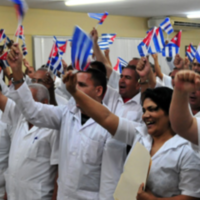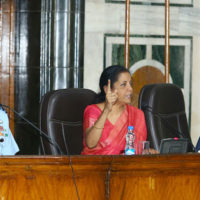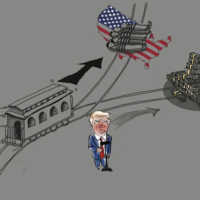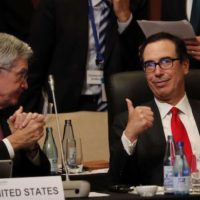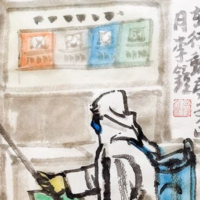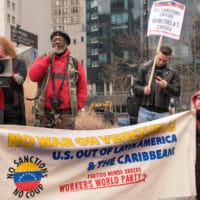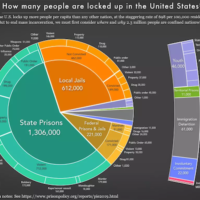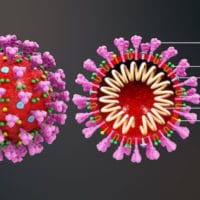-
Cuba sends doctors, nurses worldwide in COVID-19 fight
Cuba on March 28 sent a team of 39 doctors and nurses to Andorra, the thirteenth medical brigade the country has dispatched overseas to combat the COVID-19 pandemic.
-
A niggardly response to an extraordinary crisis
In a show of solidarity, some of India’s opposition leaders have declared the much-delayed relief package (titled Pradhan Mantri Garib Kalyan Yojana) announced by Finance Minister Nirmala Sitharaman on March 26 to mitigate the effects of the Coronavirus pandemic on the poor as a welcome “first step”.
-
All the craziest things about America are being highlighted by this virus
“Corona is a black light and America is a cum-stained hotel room,” comedian Megan Amram colorfully tweeted a couple of weeks ago. Her observation has only grown more accurate since.
-
‘For common benefit of all,’ Ireland nationalizes hospitals for duration of Coronavirus crisis, sparking demand for U.S. to follow suit
“How wonderful is this. A beautiful silver lining.”
-
The Federal Reserve’s Coronavirus crisis actions, explained (Part 2)
Hear comes the corporate debt purchases.
-
Letter from Catalonia: Alarming measures
I’m in a small city in Catalonia called Olot, not far from the Pyrenees. I came here because I knew the coronavirus lockdown would be much rougher in Barcelona. Still, people walk around with masks and keep social distances, barely going out.
-
We won’t go back to normal, because normal was the problem
It is hard to remember that just a few weeks ago, the planet was in motion. There were protests in Delhi (India) and Quito (Ecuador), eruptions against the old order that ranged from anger at the economic policies of austerity and neoliberalism to frustration with the cultural policies of misogyny and racism. Ingeniously, in Santiago (Chile), during its wave after wave of protests, someone projected a powerful slogan onto the side of a building: ‘we won’t go back to normal, because normal was the problem’.
-
In light of the Global pandemic, focus attention on the people
SARS-CoV-2 or COVID-19, now declared a global pandemic by the World Health Organisation, has begun to wreak havoc in large parts of the world, with other parts waiting in anticipation. We are in a real struggle, which needs total mobilisation; a struggle that needs to put life before profit.
-
As the World tackles the COVID-19 pandemic, the U.S. raises the pressure on Venezuela
In a press conference on March 26, it was almost comical how little evidence the U.S. Department of Justice provided when it accused Venezuela’s President Nicolás Maduro and several of the leaders of his government of narco-trafficking. The U.S. offered $15 million for the arrest of Maduro and $10 million for the others. Maduro, U.S. Attorney Geoffrey Berman said dramatically, “very deliberately deployed cocaine as a weapon.” Evidence for this? Not presented at all.
-
Venezuela’s Coronavirus response might surprise you
Within a few hours of being launched, over 800 Venezuelans in the U.S. registered for an emergency flight from Miami to Caracas through a website run by the Venezuelan government. This flight, offered at no cost, was proposed by President Nicolás Maduro when he learned that 200 Venezuelans were stuck in the United States following his government’s decision to stop commercial flights as a preventative coronavirus measure.
-
Venezuela: U.S. blocks flights to repatriate citizens amid COVID-19
Arreaza reiterated that the request for humanitarian flights responds to a request made by Venezuelans themselves to the Venezuelan Attention System in the United States.
-
Unions welcome government’s decision to renationalise rail services
However it should not have taken a pandemic to bring rail back into public ownership, trade unionists say.
-
The Federal Reserve’s Coronavirus crisis actions, explained (Part 1)
The Federal Reserve has taken an extraordinary amount of actions over the past two weeks (most of which have happened over the course of 8 days from March 15th to March 23rd) to calm financial markets and sustain the flow of credit to households and businesses to respond to the coming Coronavirus-induced depression.
-
How market reforms made the NHS vulnerable to pandemics
A 2014 report warned that reforms to the NHS would make it vulnerable to pandemics – by making staff redundant, undermining public health and defining spare capacity as waste. It was ignored.
-
Arrest the virus, free the prisoners!
We cannot allow the capitalist ruling class to turn a blind eye to the plight of the incarcerated population — not in general, nor in the particular circumstance of the global pandemic of Covid-19. In the U.S., there are 2.3 million human beings in state, federal, and county jails and more than 52,000 in immigrant detainment camps.
-
Donald Trump says America’s ventilator shortage was “unforeseen.” Nothing could be further from the truth
IN RECENT DAYS, President Donald Trump has repeatedly defended his administration against the suggestion that the government is failing to secure enough ventilators – medical devices that help Covid-19 patients breathe and can save the lives of those suffering serious respiratory distress.
-
Some basic lessons from the pandemic
The coronavirus attack has so far been much less deadly than the Spanish flu of a century ago. That had affected 500 million people worldwide, about 27 per cent of the world’s population of the time, and had a death rate of about 10 per cent among those affected.
-
What the government needs to do next
Tax rebates, tax cuts and business bailouts will not solve this crisis. Here’s what’s needed.
-
Covid-19 as symptom: Notes on the production of a virus
These days we hear a lot about the symptoms of Covid-19 (dry cough, high fever, etc.). Conversely, there is much less discussion of the virus as a symptom. To intervene on the symptoms of the virus it is necessary not only to have specific scientific knowledge, but also to put in place a serious reflection on the structural causes of its global spread and, with them, the possibilities of change.
-
Jeff Bezos, World’s richest man, wants your donations to help Amazon employees
A man worth over $100 billion, who makes, on average, $230,000 per minute calling on the public to help his own impoverished employees was not met well by many.

